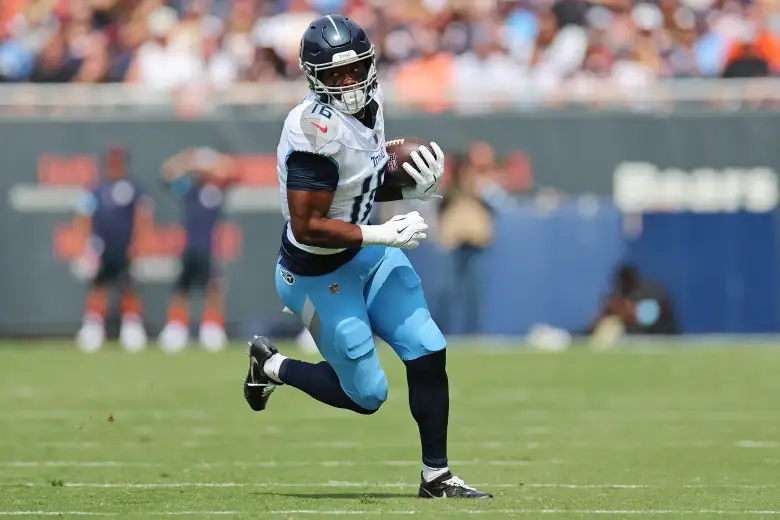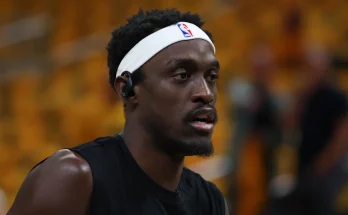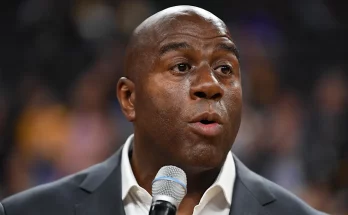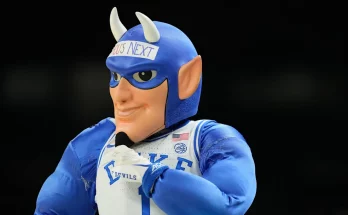The Tennessee Titans have made a significant, if not unexpected, decision regarding the future of one of their former first-round picks. According to league sources, the team has officially declined the fifth-year option on offensive tackle Isaiah Wilson, the 29th overall selection in the 2020 NFL Draft. The move signals a disappointing and premature end to a once-promising chapter and reinforces the unpredictable nature of evaluating talent at the highest level of football. For Wilson, a player who entered the league with tremendous physical gifts and long-term starting potential, the failure to solidify a meaningful role in Tennessee will undoubtedly go down as one of the most frustrating “what ifs” in recent team history. When the Titans selected Wilson out of the University of Georgia, expectations were high. Standing 6-foot-6 and weighing over 350 pounds, Wilson was regarded as a mountain of a man with the type of frame and strength that offensive line coaches dream of molding. Scouts praised his power at the point of attack, his ability to displace defenders in the run game, and his upside as a long-term right tackle. The Titans, who were coming off a surprise run to the AFC Championship Game, envisioned Wilson as a long-term bookend opposite Taylor Lewan, a player who could grow into a cornerstone of a bruising offensive identity. But things unraveled quickly—almost from the beginning. Wilson struggled to adapt to the mental and physical demands of the NFL, and his off-the-field issues began to dominate the narrative surrounding him. During his rookie season, Wilson appeared in only one game for a total of three offensive snaps. He was placed on the COVID-19 reserve list multiple times, violated team rules, and was even arrested on a DUI charge in September 2020. It was a stunning fall from grace for a player drafted with the belief that he could contribute immediately. Titans head coach Mike Vrabel and general manager Jon Robinson publicly acknowledged the challenges, with Vrabel repeatedly emphasizing the importance of professionalism and maturity. Internally, there was growing frustration with Wilson’s commitment, preparation, and accountability. By the end of the 2020 season, Wilson had become a cautionary tale—an immensely talented player whose NFL career was on life support less than a year after it began. The Titans attempted to find a fresh start for him by trading him to the Miami Dolphins for a swap of late-round draft picks in March 2021. But the move lasted just days. The Dolphins released Wilson after he reportedly skipped workouts and meetings. At that point, it became clear that Wilson’s NFL future was hanging by a thread. Despite his physical tools, he has not played another snap in the league since. The team’s decision not to pick up his fifth-year option is largely procedural at this stage, given that Wilson is not on the roster and has effectively been out of the league. Still, it serves as the final stamp on a misfire that the Titans front office has had to reckon with as part of a broader re-evaluation of their draft and development process. Former GM Jon Robinson, who was fired in 2022, faced heavy scrutiny for his first-round misses, with Wilson being the most glaring. For the Titans organization, the miss on Wilson has had ripple effects. Offensive line play has been a persistent issue in the seasons following his departure. Injuries, inconsistent play, and lack of continuity up front have plagued Tennessee, particularly in protecting quarterback Ryan Tannehill and establishing a consistent running game behind star Derrick Henry. The hole left by Wilson’s absence forced the team to reshuffle the line, spend additional draft capital, and dip into free agency to try and patch things together. Some might argue that the Wilson pick was symptomatic of a larger issue in how the Titans approached risk-reward evaluations. Despite Wilson’s impressive college film and physical measurables, there were whispers during the pre-draft process about his maturity and conditioning. Those concerns were outweighed by optimism about his ceiling. In hindsight, the Titans may have overestimated their ability to develop Wilson and underestimated the importance of intangibles in making the NFL leap. The result is a wasted first-round pick, significant cap space burned, and lost time. Wilson’s case has become a textbook example for scouts and general managers across the league on how traits alone don’t ensure success. Character, work ethic, adaptability, and passion for the game often carry equal if not greater weight than arm length, bench press reps, or tape against SEC pass rushers. As Tennessee moves forward under new leadership and a retooled front office, the emphasis has shifted toward stability, culture fit, and positional value. The organization is clearly seeking to distance itself from past misfires and build a more sustainable foundation through player development and smart personnel moves. New general manager Ran Carthon and head coach Brian Callahan have made it a priority to reshape the roster, including a major investment in the trenches. In the 2024 NFL Draft, the Titans selected offensive tackle JC Latham out of Alabama with the No. 7 overall pick, hoping to bring in a more polished, NFL-ready talent to address the same position where Wilson once stood. Latham brings a different profile—one marked by consistency, discipline, and championship experience in a pro-style offense. The Titans are hopeful he’ll deliver what Wilson couldn’t: dependability. The fifth-year option system, which applies to all first-round picks under the current collective bargaining agreement, allows teams to retain young talent through a player’s fifth season at a predetermined salary based on position and performance. Picking up the option typically reflects confidence in a player’s trajectory. Declining it, as in this case, serves as a public declaration that the team is cutting ties or has already moved on. With Wilson, the decline is simply a formality. Still just 25 years old, Wilson technically remains a free agent and could attempt a comeback. Stranger things have happened in the NFL, where talent almost always gets a second look. But barring a dramatic personal and professional turnaround, it appears unlikely. At this point, Wilson’s name is more likely to appear in draft bust retrospectives than on an active depth chart. The Titans, meanwhile, continue to work through the ramifications. The Wilson pick stands in contrast to other first-round successes like Jeffery Simmons, who has blossomed into a leader and Pro Bowl-level performer on the defensive line. Simmons, selected just a year before Wilson in 2019, signed a four-year, $94 million extension in 2023 and embodies what the Titans hope to replicate going forward: elite performance, high character, and leadership. The juxtaposition is stark and speaks volumes about how divergent the paths of two first-rounders from the same regime can be. Titans fans have long memories and have not forgotten the disappointment of Wilson’s brief, troubled stint. Yet there is a sense that the organization has learned from the experience. Draft philosophy appears to be evolving, with more emphasis placed on background checks, psychological evaluations, and culture alignment. If nothing else, the Wilson saga has reinforced the value of due diligence and the steep cost of getting it wrong. As Tennessee enters a new chapter, armed with a young core and revamped coaching staff, the franchise hopes the hard lessons of the Wilson era will inform smarter choices moving forward. The fifth-year option decision may be just a footnote, but the story behind it is a reminder that in the NFL, nothing is guaranteed—not even for a first-round pick.
Titans Won’t Pick Up Option for Former First Rounder



